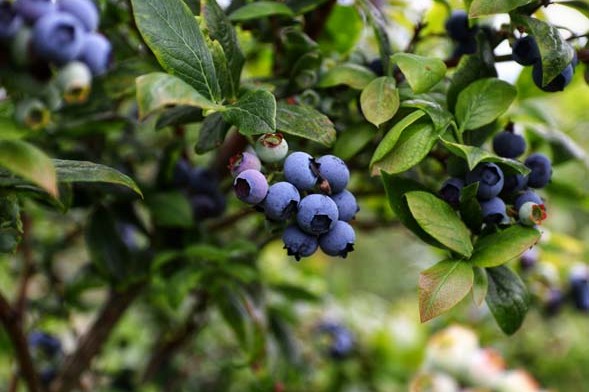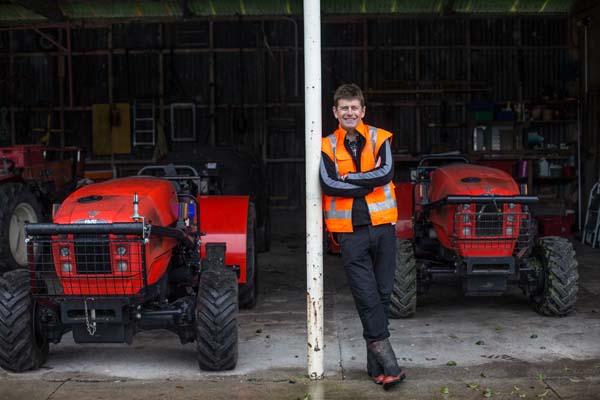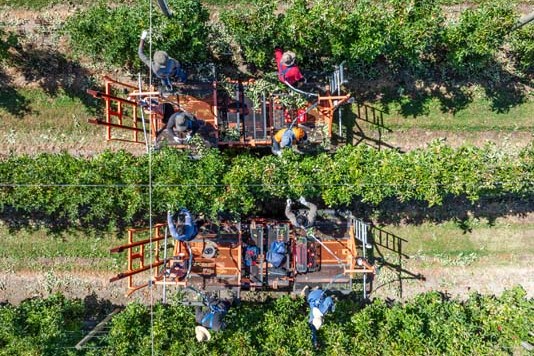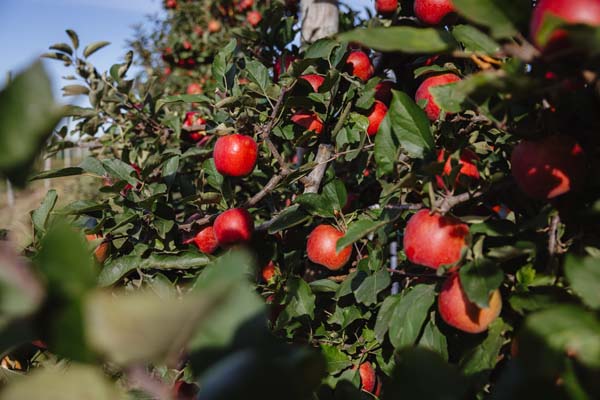On a regen journey
Russell and Charlotte Heald have transitioned to regenerative agriculture and organic farming over the past four years. Jackie Harrigan spoke with them to find out more about their journey.
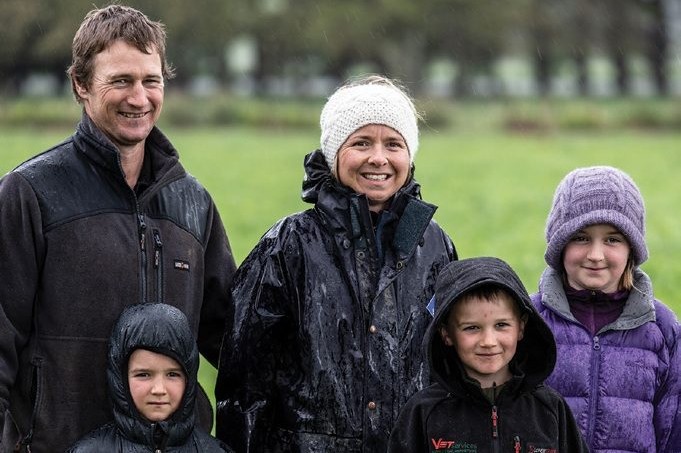
Russell Heald discovered his regen pasture mix was like a blast from the past when he found, in his grandfather’s diary, the seed mix used on their Norsewood property in the 1927/28 season.
“It was almost identical to the nine species we are using.”
Russell and Charlotte have been on a ‘regen journey’ for the past four years, also transitioning to organics, trying to find a less stressful system of farming, and are more than happy with the outcome.
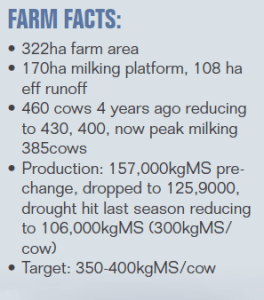 The couple says the holistic regen/organic system is proving just as profitable as the previous conventional operation and they have less work, less worry, less animal health issues and less bills to pay.
The couple says the holistic regen/organic system is proving just as profitable as the previous conventional operation and they have less work, less worry, less animal health issues and less bills to pay.
Moving to biological fertilisers (fish slurry), to a diverse pasture species mix and longer grazing rounds, while transitioning to organics, using all homegrown feed and going OAD milking has been a lot of change in the past four years – with mixed results from a couple of dry summers thrown into the mix on their 170ha milking platform.
Production has taken a hit, say the couple, but dropping out $200,000 of PK and silage from the supplement budget helped, while cutting animal health costs from $60/cow to $15-18/cow has shaved another $15,000 from the farm working expenses.
“The high payout has certainly helped ease the bit of a hit we took.”
While income is down, so are stress levels – for cows, staff and owners, Russell and Charlotte, who have just bought the family farm from Charlotte’s family trust and formed an equity partnership for the trading company.
The OAD has reduced lameness and mastitis has dropped, and reproduction has improved with an empty rate of 5% over the past two years – although this year it jumped to 12% for reasons not yet known.
Visits from the vet have dropped to two times last season.
BRINGING FUN BACK INTO FARMING
With labour of one full time team member and a couple of permanent part timers helping with relief milking and calf rearing, staff retention is no longer the massive problem it was.
“Our fulltimer is so happy, he has come from System 4-5 farms, and is now working a 11:3 roster with every second Friday and weekend off and cups on at 7am. He is much happier with his work life balance.”
In fact Russell says the system change has brought the fun back into farming.
“It’s made it more enjoyable for everyone.”
With support from Calm and Farm and Regen advisor Greg Barclay from Soil Connection, the couple have worked their way through the very different way of farming that regen involves.
Fertiliser consists of fish slurry – which has naturally occurring N,P,K and S along with a host of trace elements, sprayed on with an ocean-based dry mix with lime, dolomite, Se, B, Co, and sea salts.
Russell says they don’t focus on the chemical element breakdown rather that the fertiliser boosts the soil biology and increases organic matter – which Brookside Labs in the US has tested as having increased from 5% to 9%.
“We don’t follow the NPKS replacement model, it’s more about getting the soil biology going and getting the carbon sequestered and cycling from the atmosphere,” Russell explained.
Pastures are sown with nine different species and grown to higher covers, running different and longer rounds up to 35-45 days long at different times of the year so the plants are fully energised and full of sugar. The grazing regime consists of trampling 1/3, eating 1/3 and leaving 1/3. The trampling is about getting the trash recycling through the soil biology for the plants to use again. The longer round allows time for the plants to recover nutrients and cycle them through the fungi network, and makes the system far more resilient if the weather turns against them, Russell says.
Under a 20-30 day round the rye/clover pastures tended to suffer heat stress and gave up in a hot summer, Russell explained, but the longer round and variety of species were much more resilient, with the longer round and higher covers meaning grass grows for longer and less feeding out is needed.
“With the greater number of species there is always something that keeps growing and the feed quality holds on longer in the sward – there is a better balance of protein and carbs and that translates into better animal health,” he says.
The summer cropping mix has 12-13 species in the mix and the couple have learnt that some plants are for the soil and some are for the animals.
‘Our cows tell us that the approach is working – they are so much more relaxed and chilled out.”
While production has dropped through the journey to organics and regen practices, Russell and Charlotte have a goal to increase to 350-400kgMS/cow by compacting their calving and having more days in milk.
They have a zero bobby calf policy that works by using Wagyu semen and rearing and running the calves contracted to First Light on their runoff before they transfer to the finisher.
“Some people get hung up on production but our sustainable and environmental approach is more profitable than what we have been in the past and it’s more resilient to adverse events.
“Healthy soils equals healthy plants equal healthy, happy cows equals happy farmers – that’s our motto onfarm.”
The couple says their journey has turned heads with other local farmers, some who have challenged what they are doing and some who have shown immense interest.
“We do what we do and what works for us – every farm is different and every farmer is too.”
“You just have to do what you do and what makes you happy – that’s the most important thing – and knowing that we can run a lower stress system with a better environmental footprint in the world while building carbon and resilience is important.”
DIVERSE PASTURE MIXES INCLUDE:
- Red Clover
- White Clover
- Plantain
- Chicory
- Phalaris
- Cocksfoot
- Timothy
- Prairie Grass
- Fescue
- Tetraploid perennial ryegrass
- Italian Rye


